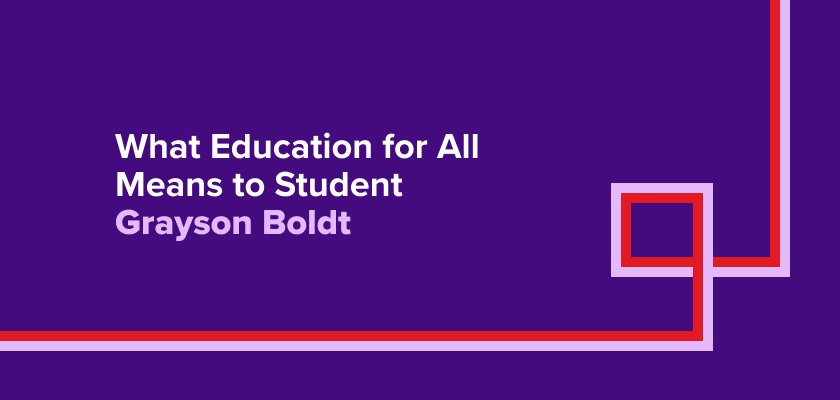Education for All: Student Grayson Boldt Shares What It Means to Him
Equity on campus means fairness in the student experience.

“Education for All” is an evolving concept within the world of higher education, one that can mean different things to different people. At McGraw Hill, we have worked to uncover its meanings and are shaping our course materials accordingly to fit the needs of institutions and instructors as they strive to make education a more equitable experience for all.
To that end, we have launched several initiatives, among them our recent white paper, Education for All: What It Takes to Get There. It unpacks Education for All and offers a framework designed to help institutions and educators advance it. Another is this blog series in which we ask instructors and students to tell us in their own words what Education for All means to them.
Grayson Boldt, a student at Phoenix College, is our second featured student respondent. Among his observations on equity in education, he points to the need for affordable course materials for all students, especially in light of rising tuition costs. (According to the National Center for Education Statistics, the annual cost to attend a four-year college has increased 180% since 1980.)
He also references students' busy lives and the value digital course materials can provide to address affordability and mobility issues.
McGraw Hill digital learning platforms like Connect® and the highly mobile ReadAnywhere® App are two such solutions. As Grayson explains it, “McGraw Hill provided the option to utilize their digital products, which decreased costs significantly while providing a more accessible option for me and students like me.”
Here's what Grayson had to say:
Equity on campus means fairness in the student experience. All students should be treated in the same way, no matter the differences in their education, income, or background. Access to affordable textbooks and course materials should be available to all students on campus, as it is paramount to their academic success and the success of the institutions they attend. Students have very busy lives; a digital option is a more affordable, and essential, resource for those that are always on the go. There are also those with disabilities on campus, making accessibility options very important for providing an equitable campus experience.
My experience with equity on campus has been with McGraw Hill. Many of my classes required expensive textbooks and course materials, which made it difficult for me and many of my classmates to purchase them on top of tuition, housing, and food costs. McGraw Hill provided the option to utilize their digital products, which decreased costs significantly while providing easy access for me and students like me.
In short, McGraw Hill made my college experience more equitable.
For more on how to foster student success, download our new white paper, Education for All: What It Takes to Get There.


